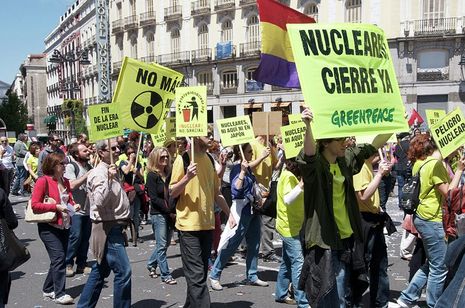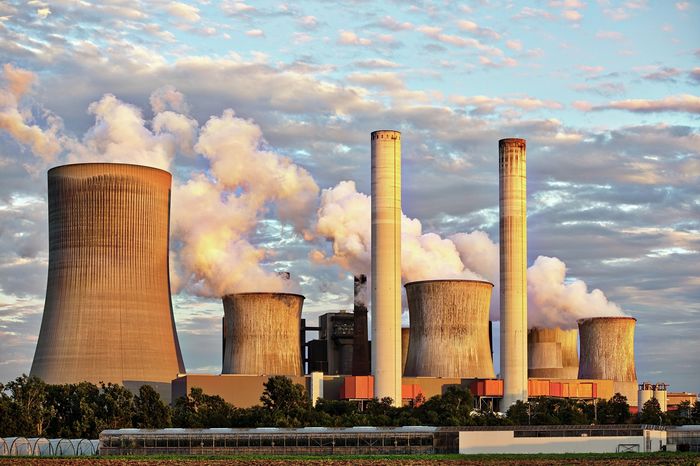Britain’s race to net zero alienates the Global South
Columnist Joel Penrose demonstrates why nuclear power is not a global solution, advocating instead for Britain to pioneer a transition that is both green and just

Following the release of the government energy strategy in March, nuclear power has undergone something of a revival in mainstream politics. In the UK at least, nuclear has come to represent consensus. Its position as a tried and tested veteran of the energy sector makes it a ‘realistic’ low carbon substitute for conventional energy sources and with plans for eight new reactors to supply some 25% of Britain’s power by 2050, Britain’s future lies in nuclear energy, or so it seems.
Criticisms of nuclear energy have traditionally revolved around the disposal of nuclear waste and threat of nuclear meltdown. They are powerful arguments as old as nuclear power itself, but with the passing of time they have come to seem ever more tired and worn. I will not dwell on them, but rather simply say that having endowed our descendants with a harsher and less plentiful world, the least we can do is ensure it is not mined with radioactive waste as well.
“A nuclear-powered world sets out no alternative path to net zero for poorer countries seeking to improve the lives of their citizens”
My own principal concerns are rather different. Though I do not doubt that nuclear power has the potential to bring the 1.5C goal within the limits of possibility, it offers no positive vision for the future. Namely, though it would reduce emissions from the big polluters such as China, Europe and the US, a nuclear-powered world sets out no alternative path to net zero for poorer countries seeking to improve the lives of their citizens.
In much of the Global South nuclear power is all but unthinkable. It is the most expensive form of electricity generation. Even in the UK, to take but one example, the new nuclear reactor at Hinkley point is set to cost a staggering £26 billion. It therefore comes as no surprise that Egypt has been chasing nuclear power to no avail since 1954, while Nigeria has been negotiating a loan with Russia and China for the purpose for over a decade. In total the number of nuclear reactors in Africa and South America can be counted on the fingers of one hand.
In many areas of the globe, violence, or the threat thereof, makes nuclear power not only unaffordable but also unspeakably dangerous. Though I do not doubt that modern nuclear power stations are some of the most secure facilities in the world, they nonetheless rely on peace and stability for safe functioning. The recent attacks on nuclear facilities in Ukraine are powerful reminders of how quickly these variables can change — if bombed, mismanaged or seized for the fabrication of nuclear weapons, the potential for mass destruction doesn’t bear thinking about.
Nuclear power therefore rests on the assumption of perpetual inequality: the assumption that, for example, the energy needs of 70m British citizens trump that of 200m Nigerians simply because Britain uses more energy than Nigeria and will continue to do so, we assume, for eternity. For this reason our insular mindset would have us believe that the need for vast supplies of clean energy is more urgent in Britain. In short, to advocate for a nuclear solution to the climate crisis is to argue that the Global Majority has no right to the same prosperity as large emitters primarily in the Global North.
“The green transition must also be a just transition”
Truth be told, net zero bears only a tenuous relation to climate justice. In chasing these arbitrary goals we are entrenching the existing divide between North and South. The UK must change its energy production in ways that less prosperous countries may learn from. This is not to say that the UK has any right to dictate development in the Global South, but rather that we must take a pragmatic approach to the fact that Britain has the wealth and resources to pioneer cheap, renewable energy sources that can be used the world over.
In a country that is directly responsible for less than 1% of global emissions, it follows that the development of accessible energy sources must remain the priority, something which continues to evade the Governmental agenda. With such rapidly changing technology, a renewable-powered world lies well within the grasp of possibility — what is lacking is the will to make it happen. Solar power, wind power, hydroelectric power, wave power, tidal power — all of these offer immense potential for poorer countries lacking the resources to go nuclear, and yet all have a long way ahead before they can be presented as viable alternatives to oil and gas. Ambitious goals that rely on technology that cannot be used in much of the world, for the reasons outlined above, remain a waste of breath.
The bottom line is that nuclear power offers no vision for a fairer world. The UK energy strategy must also be a global energy strategy; the green transition must also be a just transition. Net zero means nothing if it does not fight to recalibrate the global balance of power and, in this time of overlapping crises, offer hope in places where hope is rapidly running out.
 News / Meta opens £12 million lab in Cambridge 11 July 2025
News / Meta opens £12 million lab in Cambridge 11 July 2025 Lifestyle / Reflections on rowing10 July 2025
Lifestyle / Reflections on rowing10 July 2025 News / Write for Varsity this Michaelmas13 July 2025
News / Write for Varsity this Michaelmas13 July 2025 Features / How to catch a coat thief13 July 2025
Features / How to catch a coat thief13 July 2025 Comment / What is originality, anyway? 14 July 2025
Comment / What is originality, anyway? 14 July 2025










